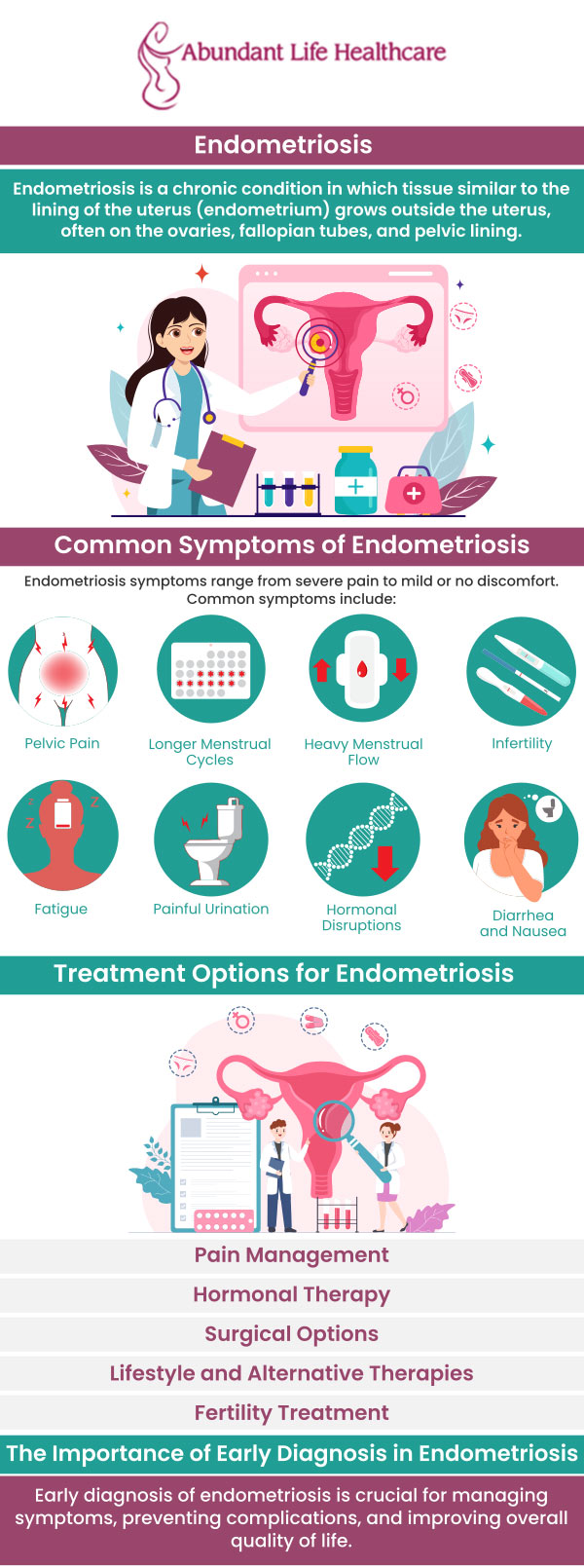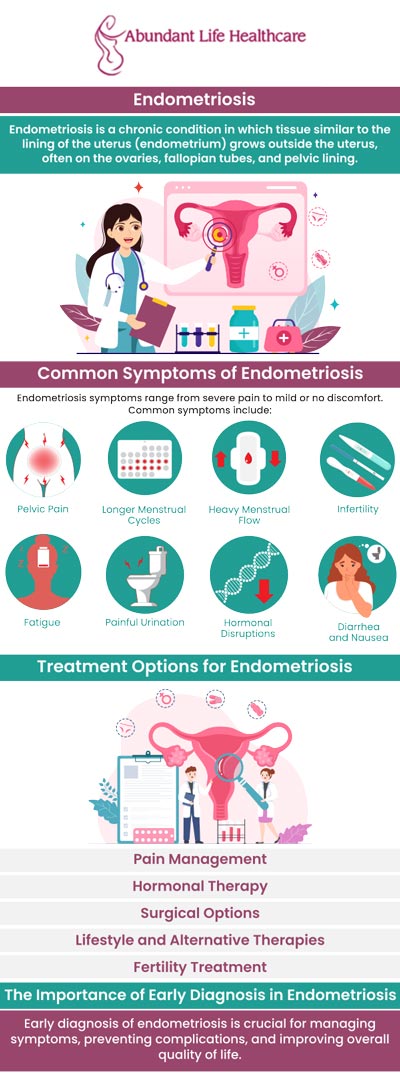Endometriosis Specialist in Lawrenceville, GA
Endometriosis is a condition resulting from the appearance of endometrial tissue outside the uterus, causing pelvic pain and fertility problems. It can begin with a woman’s first menstrual period and extend until menopause. Dr. Marc Jean-Gilles, DO, FACOG, is very experienced with this condition. For more information, contact us or book an appointment online. We are conveniently located at 601A Professional Drive, Suite 370, Lawrenceville, GA 30046.




Table of Contents:
What is endometriosis?
What are the symptoms of endometriosis?
Who can get endometriosis?
How is endometriosis diagnosed?
Endometriosis is a painful disorder that affects the fallopian tubes, ovaries, and the tissue lining the pelvis. Due to endometriosis, the lining of the uterus grows on the outside instead of the inside of the organ. As it grows in an area it shouldn’t, endometriosis tissue cannot exit the body as needed during menstrual periods. The condition causes the surrounding tissue to become irritated. This is why endometriosis causes chronic pain, especially during menstrual periods.
Endometriosis is an illness that affects over 6 million women in the United States. While it is quite common, this condition can be extremely challenging, painful, and sometimes, debilitating. Furthermore, endometriosis can lead to fertility problems. However, there are treatments available to manage discomfort and live your best life despite your diagnosis.
Endometriosis can cause a range of symptoms, including:
• Painful periods – Endometriosis causes pelvic pain and cramping. These symptoms typically start before your period begins and last for several days after. They can be accompanied by lower back and stomach pain.
• Pain with bowel movements or urination – If you live with this condition, you may experience discomfort during bowel movements or urination right before or during your period.
• Excessive bleeding – Irregularities in menstrual bleeding patterns, such as heavy periods or bleeding between periods, are characteristic of endometriosis.
• Pain during sex – Pain during or after sexual activity is a common sign of endometriosis.
• Infertility issues – In some cases, endometriosis can affect your fertility. This disorder is often discovered during fertility testing.
• Other symptoms – Various other symptoms can be caused by endometriosis, such as fatigue, diarrhea, constipation, bloating, and nausea. These symptoms are more pronounced before and during menstrual periods.
Endometriosis is a condition that affects people who are born with a uterus. Anyone with a uterus can develop this painful chronic illness. Endometriosis is often diagnosed in individuals who are in their 30s or 40s. Despite this, the condition also commonly affects people in their 20s or younger. There are a few factors that raise your risk of developing this condition, including:
• High levels of estrogen.
• Never giving birth.
• Heavy menstrual periods that last over a week.
• A menstrual cycle that is shorter than 27 days.
• Low body mass index.
• You are starting your period at an early age.
• Family history of endometriosis.
In addition, if you have any health conditions that prevent blood from flowing out normally during menstrual periods, you have an elevated risk of developing endometriosis. Furthermore, all conditions that impact the reproductive tract are risk factors.
If you suspect you have this condition, it’s urged that you reach out to a professional for diagnosis, guidance, and support throughout treatment. The experts at Abundant Life Healthcare are highly skilled at managing the painful symptoms of this chronic condition.
To accurately diagnose what’s causing your discomfort, medical professionals take a comprehensive approach. The process will begin with a thorough discussion of your medical history and the current symptoms you are dealing with. A pelvic exam will be conducted to identify any abnormalities. Through these initial steps, the doctor may suspect endometriosis but will need to confirm it through a process known as a laparoscopy.
Laparoscopy is a crucial diagnostic tool as it allows for the direct visual examination of the pelvic organs. During this procedure, a small incision is made near the navel, through which a thin tube equipped with a camera, known as a laparoscope, is inserted. While this is happening, you will be under general anesthesia so you won’t experience any discomfort.
Laparoscopy allows healthcare providers to inspect the pelvic cavity for the presence of endometrial tissue outside the uterus. In some cases, a tissue sample may be obtained for further analysis. If you live with chronic pelvic pain, it’s essential to determine why you’re experiencing this discomfort. To find out what’s at the root of your symptoms, you can trust the dedicated experts at Abundant Life Healthcare. We are conveniently located at 601A Professional Drive, Suite 370, Lawrenceville, GA 30046. We serve patients from Lawrenceville GA, Suwanee GA, Snellville GA, Duluth GA, Loganville GA, Auburn GA, and surrounding areas.

Additional Services You May Like

Additional Services You May Like
- Obstetrics
- Pregnancy
- Gynecologist
- Birth Control
- Labiaplasty
- Microblading
- Weight Loss
- Semaglutide GLP-1
- Pap Smears
- Pelvic Pain
- Laser Hair Removal
- In House Ultrasound (Including 3D)
- Vaginal Birth After C-Section (VBAC)
- Pregnancy As High Risk
- Multiple Gestations
- Postpartum Counseling
- 24hour/365days On Call Service
- Annual Exam
- Abnormal Uterine Bleeding
- Management Of Endometriosis
- Ultrasound
- Pelvic Organ Prolapse
- Urinary Incontinence
- Perimenopause And Menopause
- Sexual Dysfunction
- Fat Freeze (Like Cool Sculpting)
- Body Contouring
- Ozempic
- Civil Surgeon
- Hormone Replacement Therapy
- Immigration Medicine
- Biote Hormone Pellets
- GLP-1
- Peptide Therapy




